VIDEO
Watch the showreel from the 9th EMN Educational Seminar on Migration 2023
PODCASTS
Listen to podcasts from the 9th EMN Educational Seminar on Migration 2023 and other EMN Slovakia's events
DAY 1 | 3 July 2023
Vulnerabilities, rights, and protection of migrants
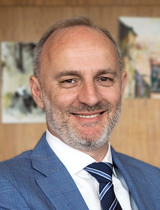
Photo: © Miroslav Vacula, 2023.
Valon Halimi
Chief of Mission, International Organization for Migration (IOM) Slovakia
Valon HALIMI is the Chief of Mission of the International Organization for Migration (IOM) in Slovakia. He has held various positions in the organization since 1999. Most recently, he was Chief of Mission a.i. and Liaison Officer to Frontex, for IOM Poland (2022) and Officer in Charge for the IOM Belgium and Luxembourg (2021). He also served as a Senior Liaison Officer at IOM in Bamako, Mali, and as a Head of the Protection Unit in IOM Belgium.
Valon has managed various projects, ranging from direct humanitarian assistance to sustainable socio-economic development in various countries including Belgium, Greece and Mali.
Opening Keynote Speech: Vulnerability in migration and displacement
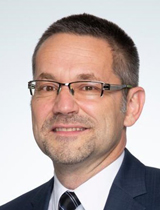
Ján Orlovský
Director of Migration Office of the Slovak Ministry of Interior & EMN Steering Board member for the Slovak Republic
Ján ORLOVSKÝ took the current position in January 2021. Migration Office is responsible for the country´s international protection agenda and coordination of the Slovak migration policy. He also represents Slovakia at the Steering Board of the European Migration Network (EMN). From 2015 to 2021, Jan was the Executive Director of the Open Society Foundation (OSF). Prior to that (2003 – 2014) he held position of a Spokesman and Head of the Office of the Board of Directors of the company Západoslovenská energetika a.s. In 1992 – 2002, Jan was working as a diplomat for the Slovak foreign service with two postings at the Slovak Embassy in Washington, DC as liaison with the US Congress, non-profit and think-tank organizations.
Opening Keynote Speech: Situational vulnerabilities of foreigners and people in need of protection in Slovakia (in Slovak language)
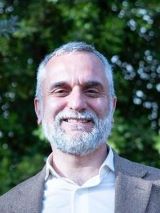
Federico Soda
Director of the Department of Operations and Emergencies (DOE), IOM Headquarters, Switzerland
Federico SODA is the director of the Department of Operations and Emergencies (DOE) at the International Organization for Migration. Federico has more than 20 years of experience in crisis preparedness and response, displacement, forced migration and programming related to returns, disarmament demobilization and reintegration, labour migration, counter-smuggling and counter-trafficking. He has extensive experience working with governments, civil society, academia and in complex, integrated UN missions.
Previously, as a Chief of Mission for IOM in Libya he was responsible for overseeing IOM’s activities in the country including humanitarian assistance and emergency response, technical cooperation, capacity building and community stabilization in order to enhance migration management systems in Libya. Since 2001 he has served with IOM in Bosnia and Herzegovina, Myanmar, the Regional Office in Bangkok, Headquarters and as Director of the Coordination Office for the Mediterranean in Rome. In June 2023, Federico was appointed as the Migration Emergency Coordinator (MEC) for the Democratic Republic of the Congo (DRC).
Topic: New and protracted crises: vulnerabilities of migrants and refugees (online)

Nassim Majidi
Founder & Executive Director of Research, and Policy, Migration and Displacement Pillar Lead, Samuel Hall
Dr Nassim MAJIDI is the Co-Founder of Samuel Hall and Head of the Migration Pillar where she leads evidence-based research and policy development on migration and displacement. Nassim is known for her work as an expert on return and reintegration, and more broadly on durable solutions to displacement, migrant aspirations, and cross border mobility.
Covering three continents (Africa, Asia, Europe) over the past ten years, her cross-cutting skills have led her to interview refugees, migrants and returnees in the world’s border areas, conflict settings and countries of origin. Based on her knowledge of migration actors, she has developed strategic programming initiatives, national policies on migration, and monitoring reviews that have had a lasting impact.
She is also an Affiliate Researcher at Sciences Po’s CERI (Centre for International Studies); a Research Associate at the African Centre for Migration and Society at the University of Witwatersrand, the Feinstein International Center at Tufts University, and the Université Houphouet Boigny, Institute for Good Governance, Development, and Foresight (IGDP).
Ms. Majidi was nominated in 2015 by the Norwegian Refugee Council for the Nansen Refugee Award in recognition for her work on behalf of Afghanistan’s displaced population. She holds a Bachelor’s degree in Government from Cornell University, a Summa Cum Laude Masters in International Affairs and Development Studies and a PhD in International Relations from Sciences Po Paris.
Topic: Migration and Health: Challenges and Needs Across the Migration Cycle (online)
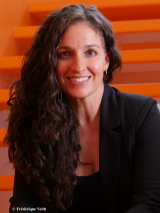
Melissa Siegel
Professor of Migration Studies at United Nations University-MERIT and Maastricht University, The Netherlands
Melissa SIEGEL is a Professor of Migration Studies at Maastricht University and the United Nations University-MERIT. She is Co-Director of the Maastricht Center for Citizenship, Migration and Development (MACIMIDE), and is a Research Associate at the Center on Migration, Policy and Society (COMPAS) at the University of Oxford. She is also on the advisory board of the Migration Policy Center, EUI. She has done visiting research fellowships at Harvard University and the University of Oxford. She has advised, worked on or headed projects for several governments and international organisations and is regularly involved in migration-related trainings/capacity building for governments and international organizations while teaching at the Bachelor, Master and PhD level. Her main research interests lie in the causes and consequences of migration with a strong emphasis on the linkages between migration and development. She also has a successful YouTube channel on migration issues.
Topic: Gender and migration (including workshop)
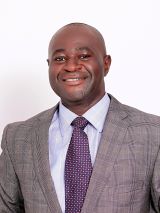
Samuel Okyere
Senior Lecturer in Sociology at the School of Sociology, Politics, and International Studies (SPAIS), University of Bristol, United Kingdom
Samuel OKYERE is a Senior Lecturer in Sociology at the School of Sociology, Politics, and International Studies (SPAIS), University of Bristol and a founding member of the Beyond Trafficking and Slavery hub on OpenDemocracy. He specialises in critical reflections on the interplay between human rights, power, inequality, ethnicity, and class under conditions of globalisation. He has pursued these interests through extensive research on precarious migration, trafficking and labour mobility involving both adult and children. He has been invited to address these themes as expert informant in meetings with the UNODC, IOM, ILO, UNICEF, national and regional governmental agencies and audiences in Africa, Europe, South America, and North America.
Samuel is the co-author of the book International Child Protection Towards Politics and Participation, with a second book currently under preparation. In addition to these, his research has also been widely disseminated in diverse forms including journal articles, book chapters, TV and radio appearances, blogs, cartoon abstracts and a forthcoming documentary film.
Topic: Vulnerabilities of working migrants and migrant children in the global economy (including workshop)
DAY 1 | EMN Discussion Evening: The New Europeans
Public Event on 3 July 2023 about migration, migration policies and long-term public attitudes towards foreigners and diversity in Slovakia in the light of a broader economic, demographic and social reality (in Slovak language).

Oľga Gyárfášová
Sociologist and associate professor at the Institute of European Studies and International Relations, Comenius University in Bratislava, Slovakia
Oľga GYÁRFÁŠOVÁ is a Sociologist and Associate Professor at the Institute of European Studies and International Relations at the Comenius University in Bratislava. She is also founding member and Senior Researcher at the Institute for Public Affairs (IVO), independent public policy think tank. In her work she focuses on public opinion, electoral studies, integration, and political culture. She is author, and co-author of dozens of expert publications. In addition, she has been working on many domestic and international projects, for example: she is a national coordinator of the European Election Studies and principal investigator of the world-wide project Comparative Studies of Electoral Systems. She has been also involved in the longitudinal EU-wide research Migration Integration Policy Index (MIPEX) and has been working on several projects focused on integration of migrants in Slovakia.
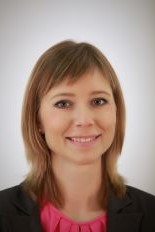
Lucia Mýtna Kureková
Senior researcher at the Centre of Social and Psychological Sciences, Institute for Forecasting of the Slovak Academy of Sciences, Slovakia
Lucia MÝTNA KUREKOVÁ (PhD) works as a Senior Researcher at the Centre of Social and Psychological Sciences, Institute for Forecasting of the Slovak Academy of Sciences. She has widely published in recognized international journals, and has participated in several international collaborative research projects. Her migration research studies various aspects of intra-EU mobility, including return migration, as well as the role of institutions in labour market integration of immigrants in the EU. Since 2023, she is a member of Horizon Europe project PACES which seeks to gather unique evidence to understand decision-making of migrants across time and space.

Ján Orlovský
Director of Migration Office of the Slovak Ministry of Interior
Ján ORLOVSKÝ took the current position in January 2021. Migration Office is responsible for the country´s international protection agenda and coordination of the Slovak migration policy. He also represents Slovakia at the Steering Board of the European Migration Network (EMN). From 2015 to 2021, Jan was the Executive Director of the Open Society Foundation (OSF). Prior to that (2003 – 2014) he held position of a Spokesman and Head of the Office of the Board of Directors of the company Západoslovenská energetika a.s. In 1992 – 2002, Jan was working as a diplomat for the Slovak foreign service with two postings at the Slovak Embassy in Washington, DC as liaison with the US Congress, non-profit and think-tank organizations.
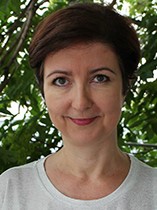
Zuzana Vatráľová
Chief of Mission, International Organization for Migration (IOM), Ireland
Zuzana VATRÁĽOVÁ assumed position as a Chief of IOM Ireland in May 2023. Previously, she had served as the Head of the IOM Office in the Slovak Republic since 2004. In 2003, she worked at IOM as a coordinator of the information campaign on Preventing Human Trafficking in Slovakia. From 1997 to 2002, she worked as a journalist for BBC Bratislava and London. Prior to that, she had been a project manager at the National Agency for Development of Small and Medium Enterprises (NADSME) and she had also worked at the Ministry of Foreign Affairs of the Slovak Republic.
She graduated in Journalism from the Faculty of Arts at Comenius University in Slovakia, and accomplished postgraduate studies at the Karol Rybárik Institute of International Relations of the Law Faculty at the Comenius University.
DAY 2 | 4 July 2023
Power of the passport & phenomenon of migrant caravans

Boldizsár Nagy
Associate Professor, Central European University, Austria
Boldizsár NAGY read law and philosophy and received his PhD in law at the Eötvös Loránd University (ELTE) in Budapest. He teaches refugee law and international law at the Central European University in Vienna. He has acted as expert for UNHCR, the Council of Europe and the EU and was counsel for Hungary in the Gabcikovo-Nagymaros Project case in front of the ICJ. He is one of the founders of the European Society of International Law and of the Refugee Law Reader and is member of the editorial boards of the International Journal of Refugee Law and of the European Journal of Migration and Law. Most of his research centers on refugee law and migration law, but he has also published on a wide variety of other international law subjects including sovereignty, the common heritage of mankind and nationality. Further details - including a bibliography – are available at his website: www.nagyboldizsar.hu
Topic: Passports, visas: coats of arms of a feudalistic mindset

Baptiste Amieux
Regional Immigration and Border Governance Specialist, Policy and Programme Support Division, International Organization for Migration (IOM) Regional Office for the EEA, the EU and NATO, Belgium
Baptiste AMIEUX is the regional thematic specialist on the immigration and border governance (IBG) unit at the International Organization for Migration (IOM), based in Brussels, and covering the European Economic Area. The IBG mandate of IOM supports national governments to facilitate safe and regular migration, including legal pathways, as well as enhancing border security, and access to identity. Prior to this position, Baptiste served as a programme manager in Niger for 5 years. Before that, Baptiste served with IOM and other UN Agencies in Kosovo, Lao PDR, Tunisia and Burkina Faso.
Topic: The global mobility and access to identity (online)

Dardan Koçani
Field Coordinator for Kosovo, Global Initiative against Transnational Organized Crime (GI-TOC)
Dardan KOCANI joined the GI-TOC in March 2022 as Field Coordinator for Kosovo for the South Eastern Europe Observatory. The Global Initiative is an independent civil-society organization, headquartered in Geneva, Switzerland, with a globally dispersed Secretariat and a high-level advisory board.
Dardan has worked nine years for the Ministry of Internal Affairs of Kosovo covering strategic planning, policy coordination, international cooperation and EU integration process. He has worked for UNDP Kosovo as Project Manager of the project Support to Anti-Corruption Efforts in Kosovo and as expert/consultant for various projects and organizations in the field of home affairs. Dardan holds a degree in Management, Economics and Statistics from Rochester Institute of Technology and MA on Advanced European Studies from European College of Parma and the University of Parma.
Topic: Smuggling and organized criminal networks in migration flows

Simona Carnino
Freelance Journalist and Documentarist, Italy
Simona CARNINO is a freelance journalist and documentary filmmaker specializing in human rights. She covers the impact of structural violence and political, economic, and environmental conflicts on local and indigenous populations, with extensive reporting experience on forced migration from Latin America to the United States and Canada.
She has collaborated with national and international newspapers such as Internazionale, Sky, Repubblica, El Pais, Lifegate, Altraeconomia, and Il Manifesto.
She has directed documentaries focused on human rights, including "Aguas de Oro", "The Power of Passport ", “Passaggi," and "Somos - historias de personas y caravanas centroamericanas," capturing the human experience within socio-political struggles and giving voice to marginalized communities.
She was awarded the Mimmo Cándito per un Giornalismo a Testa Alta prize in 2020 for her reportage focused on Mesoamerican Caravans and the impact of deportation on Central American migrants from the United States.
Topic: The Power of Passport – documentary screening and discussion

Abril Ríos
DPhil candidate in Migration Studies, Oxford Centre on Migration, Policy, and Society, University of Oxford, United Kingdom
Abril RÍOS is interested in the intersections of migration, gendered relations, power, and agency. She prioritises perspectives that move away from discourses centered on vulnerabilities to instead acknowledge the agentic capabilities of migrants within structures.
Abril is a DPhil candidate in Migration Studies at the Oxford Centre on Migration, Policy, and Society, University of Oxford. She is a psychologist specialising in sociocultural psychology and gender studies, and holds a master’s degree in Migration and Intercultural Relations.
Her doctoral research focuses on decision-making and empowerment among women, transwomen’s and other feminised people in the context of international migration in Mexico. She looks at these dynamics in two Mexican cities bordering Guatemala and the USA and in the capital. She uses photovoice (participatory photography and narratives) interviews and surveys. She collaborates with groups of Latin American and Caribbean migrant women, transwomen and other feminised people, migrant and refugee men, local communities, civil society organisations, experts, and activists.
As a consultant, Abril also supports a World Bank and UNHCR research program on displacement, poverty, and development in Kenya and has experience working on forced displacement issues in Uganda and Burundi.
Topic: “Alone, we go fast. Together, we go further”. Migrants’ collective (dis-)empowerment in the Americas (online)

Michele LeVoy
Director of the Platform for International Cooperation on Undocumented Migrants (PICUM), Belgium
As Director of PICUM, Platform for International Cooperation on Undocumented Migrants, Michele has led the organization for nearly two decades in advocating for undocumented migrants’ human rights towards European and global institutions. Michele has played a key role as board member for several civil society organisations at the global and EU levels. She holds degrees in French, Justice and Peace Studies and a Master in Applied Sciences (Housing and Development).
Topic: Regularisation and other ways to protect undocumented migrants / migrants in irregular situations
DAY 3 | 5 July 2023
Modern slavery and the law

Katarina Schwarz
Assistant Professor in Antislavery Law and Policy & Associate Director of the Rights Lab, University of Nottingham, United Kingdom
Dr Katarina SCHWARZ is Associate Director of the Rights Lab and Associate Professor in Antislavery Law and Policy at the School of Law at the University of Nottingham. Her research explores the intersections between slavery and the law, from the historical to the contemporary.
In her role leading the Rights Lab's Law and Policy Programme, Schwarz works at the interface of research and policy to deliver evidence-based guidance for contemporary antislavery action. Her Rights Lab research interrogates the law and policy frameworks operating at the global, regional, and domestic levels to determine the elements of effective antislavery governance and map trends, successes, and failures. She has delivered contract research, consultancy, training, and expert evidence to national governments, international and local civil society organisations, private sector actors, and multilateral institutions, including the ILO, IOM, OHCHR, European Parliament, and the governments of Uganda, Malawi, Namibia, the United States, and the United Kingdom.
Schwarz is the lead author of the Antislavery in Domestic Legislation Database, the world's first comprehensive database of international obligations and domestic legislation on slavery and related practices. This project, initiated in 2015, maps the current state of domestic legislation prohibiting slavery, servitude, forced labour, institutions and practices similar to slavery, and human trafficking in all 193 UN Member States, providing new insights for the global antislavery movement.
Topic: Slavery is not a crime in almost half the countries in the world – how can we change that? (lecture and workshop)

Samuel Okyere
Senior Lecturer in Sociology at the School of Sociology, Politics, and International Studies (SPAIS), University of Bristol, United Kingdom
Samuel OKYERE is a Senior Lecturer in Sociology at the School of Sociology, Politics, and International Studies (SPAIS), University of Bristol and a founding member of the Beyond Trafficking and Slavery hub on OpenDemocracy. He specialises in critical reflections on the interplay between human rights, power, inequality, ethnicity, and class under conditions of globalisation. He has pursued these interests through extensive research on precarious migration, trafficking and labour mobility involving both adult and children. He has been invited to address these themes as expert informant in meetings with the UNODC, IOM, ILO, UNICEF, national and regional governmental agencies and audiences in Africa, Europe, South America, and North America.
Samuel is the co-author of the book International Child Protection Towards Politics and Participation, with a second book currently under preparation. In addition to these, his research has also been widely disseminated in diverse forms including journal articles, book chapters, TV and radio appearances, blogs, cartoon abstracts and a forthcoming documentary film.
Topic: The global anti-trafficking framework: overview, issues and debates (lecture and workshop)

Zsuzsanna Felkai Janssen
Anti-Trafficking Team Leader, EU Anti-Trafficking Coordinator Office, Belgium
Zsuzsanna FELKAI JANSSEN graduated in law in Budapest in the Eötvös Lóránd University in Hungary in 1996. She has a master degree in Commercial and Competition Law from the King’s College London and she has also a master in European Studies in the University of Hamburg. In 2002, she joined the General Secretariat of the Council of the European Union to assist the accession of Hungary to the European Union as a lawyer linguistic reviser. Since 2011, Zsuzsanna has been working at the European Commission in the Directorate General for Migration and Home Affairs. She has been in charge of the Schengen Information System, the largest EU law enforcement database, first as a lawyer and afterwards as a Head of Sector. Numerous initiatives have been adopted under her leadership for example in the field of terrorism and biometrics. She has initiated and negotiated the existing legal framework. Between 2018 and 2021, she was heading a situational awareness sector concerning migration and her team is producing the most important migration situational awareness report of the European Commission in the area of migration. In addition, she has been appointed to the DG Coordinator for Artificial Intelligence to coordinate and lead the DG AI related initiatives. Since 2021 Ms. Felkai Janssen is the team leader of the anti-trafficking team under the EU Anti-trafficking Coordinator.
Topic: Trafficking in human beings within the European Union (online)

Heather Komenda
Senior Regional Thematic Specialist for Protection, International Organization for Migration (IOM) Regional Office for South-Eastern Europe, Eastern Europe and Central Asia, Austria
Heather KOMENDA is a migrant protection professional with 20 years of experience in protection and assistance. She joined IOM in 2004 and has worked in South East Asia, East Africa and the Horn, the Middle East and North Africa, and IOM HQ in Geneva. Heather is currently the Senior Regional Thematic Specialist for Migrant protection covering South-Eastern Europe, Eastern Europe and Central Asia. Heather’s specializations include prevention and protection of victims of trafficking and migrant victims of violence, exploitation and abuse. She has extensive experience in supporting development of anti-trafficking frameworks and structures and in providing technical assistance to partners in government, civil society, and law enforcement. She holds a Master of Arts Degree in Political Science from McGill University and a Bachelor of Arts (Hons.) Degree in Political Science from the University of Manitoba.
Topic: Global estimates and datasets on human trafficking & examples of effective assistance to the victims

Martha Mendoza
Investigative Journalist & Pulitzer prize-winner, Associated Press (AP), USA
Martha MENDOZA is an investigative reporter whose reporting has prompted White House responses, new legislation, overturned conviction and as part of a team whose investigations into slavery in the Thai seafood business led to the freedom of more than 2,000 men. Earlier reporting uncovered a U.S. Army massacre of hundreds of civilians early in the Korean War. Currently based in California, she’s worked out of Associated Press bureaus in Mexico City, Bangkok, New York, Silicon Valley and Albuquerque.
Topic: How to best cover and communicate human trafficking stories? Tips for policymakers and journalists (online)

